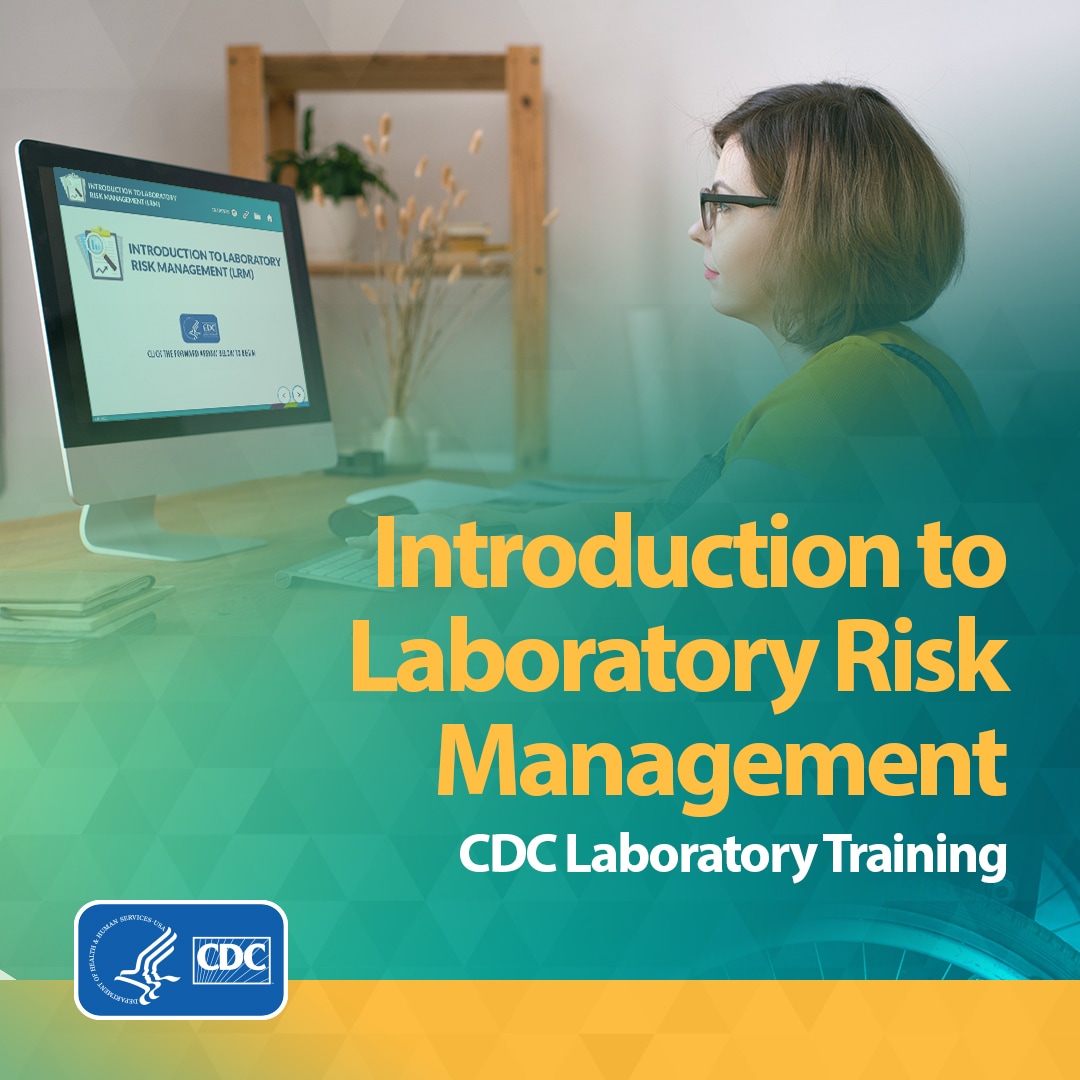Free Educational Materials for Public Health and Clinical Laboratories
CDC’s Division of Laboratory Systems (DLS) has collaborated with public health and clinical laboratory partners to develop online educational materials on a variety of laboratory topics. These materials—training courses, tools, and other resources—are designed to help laboratory professionals and healthcare providers learn and use recommended practices for quality laboratory services. All training courses and other materials are free, and continuing education (CE) credits are available for many courses. See what DLS has to offer and find out how the division can help meet training and professional development needs.
Browse DLS training courses at www.cdc.gov/labtraining.
Waived tests include test systems cleared by FDA for home use and tests approved for waiver under the Clinical Laboratory Improvement Amendments (CLIA) criteria. DLS offers a variety of educational resources for performing waived testing.
- Self-Assessment Checklist
Focuses on recommended practices for physicians, nurses, medical assistants, pharmacists, and others who perform patient testing under a CLIA Certificate of Waiver. It is a tool to help assure good testing practices and reliable, high-quality test results. - To Test or Not to Test? Booklet
Prepares laboratory professionals who implement and oversee waived testing, or offer a new test under a CLIA Certificate of Waiver. The booklet contains tips, reminders, resources, and forms with examples for use at the testing site. - Ready? Set? Test! Booklet
Describes recommended practices for physicians, nurses, medical assistants, pharmacists, and others who perform patient testing under a CLIA Certificate of Waiver. The booklet contains tips, reminders, resources, along with forms and examples for use at the testing site. - Ready? Set? Test! Online Course
Encourages reliable, high-quality testing and enhances patient safety by outlining the waived testing process step-by-step.
In 2005, CDC’s Division of Laboratory Systems (previously known as the Division of Laboratory Science and Standards), published the MMWR Recommendations and Reports on “Good Laboratory Practices for Waived Testing Sites.” The recommendations in this report are intended to be a resource for physicians, nurses, and others who perform waived tests in sites holding a Clinical Laboratory Improvement Amendments (CLIA) Certificate of Waiver. The recommendations were published to promote quality testing, reduce testing errors, and enhance patient safety.
- Good Laboratory Practices for Molecular Genetic Testing for Heritable Diseases and Conditions
Recommendations for laboratories that perform molecular genetic testing for heritable diseases and conditions. This report is also for medical and public health professionals who evaluate laboratory practices and policies to improve the quality of molecular genetic laboratory services. Improvements in the quality and use of genetic laboratory services can improve the quality of health care and health outcomes for patients and their families. - Good Laboratory Practices for Biochemical Genetic Testing and Newborn Screening for Inherited Metabolic Disorders
A comprehensive guide for quality practices in biochemical genetic testing and newborn screening for heritable metabolic disorders. Topics include application of the quality management system approach, factors to consider when introducing new tests, test validation, quality assurance of all testing phases, confidentiality of patient information, and laboratory personnel competencies. - Good Laboratory Practices for Waived Testing Sites
A resource for physicians, nurses, and others who perform waived tests in sites that have a CLIA Certificate of Waiver. The recommendations were published to promote quality testing, reduce testing errors, and enhance patient safety. - Competency Guidelines for Public Health Laboratory Professionals: CDC and the Association of Public Health Laboratories
Outlines the knowledge, skills, and abilities that public health laboratory professionals need to deliver services efficiently and effectively. The guidelines establish core competencies to support public health laboratory workforce needs, such as identifying job responsibilities, assessing individual performance, and producing education and training programs.
Certain moderate complexity microscopic tests that do not meet the criteria for waiver can be performed as provider-performed microscopy (PPM) procedures by physicians and other trained healthcare providers during a patient visit. The educational booklet Provider-Performed Microscopy Procedures: A Focus on Quality Practices reviews the regulatory requirements, provides sample forms, and shows images of common findings for the nine specific microscopic examinations that may be performed under a CLIA Certificate of PPM procedures.
The IQCP approach allows laboratories to customize a quality control plan for their unique testing environment that meets CLIA regulatory requirements. DLS offers Developing an IQCP: A Step-by-Step Guide to help laboratory professionals create and implement an IQCP. This workbook assists in developing an IQCP for one or more test systems. It includes a step-by-step process, using examples, for developing an IQCP that can be sustained and modified over time. It shows how to evaluate current quality activities and create a worksheet that can be used to complete IQCP documentation. The approach outlined in the workbook is neither mandatory nor the only format for documentation, but it is a useful example.
